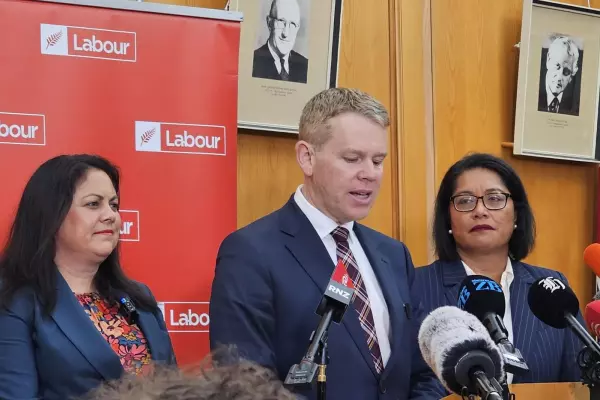With the financial year now over and the calendar year almost six months gone, New Zealand businesses have finally had a chance to take stock of where they’ve landed after the shake-up of 2020.
Despite all we’ve achieved in eliminating covid-19 in NZ, the business outlook now appears somewhat gloomier than before last October’s election.
The challenge – and opportunity – for the government in this Budget is to find a way to support workers while still helping local businesses grow the economy, all with a backdrop of the ongoing global pandemic and relative uncertainty around our borders.
When we polled more than 450 businesses last year, around 40% of them forecast a tougher operating environment following the election. And this number has stayed steady, increasing somewhat to more than half (54%).
That’s despite 10% fewer businesses reporting decreased revenues due to covid-19.
As an accounting and advisory network working with all types of businesses across NZ, we wonder what it is that continues to concern our clients.
Companies already struggling
During the worst of the pandemic, the government supported businesses with wage subsidies and other financial help.
Since then, however, ongoing minimum wage increases, additional sick leave allocations, a new public holiday announcement and this month, plans to strengthen collective bargaining for entire industries, have made doing business tougher.
That’s why business leaders will be watching this year’s Budget especially closely, concerned new changes (or lack of investment in areas such as innovation and technology) could create a missed opportunity to regrow the economy or even spell the end for companies already struggling with additional compliance and costs.
Many of our clients are also concerned about losing talent offshore when borders reopen.
It’s unclear whether the trans-Tasman bubble is truly the answer to our economic prayers. The short-term answer suggests not.
While the border is open to Australia, some alert level yo-yos and temporary closures have certainly created business travel nerves.
Beyond opening our borders – and the percentage of businesses who want this to happen has dropped below half, compared to two-thirds before Christmas – businesses need the government to keep up the support. Because despite our better than expected economic performance, we’re (still) all in it together.
When the government is borrowing heavily to pay for its covid-19 spending, the additional cost of doing business is especially concerning.
At some point, this debt will have to be repaid, and a healthy economy with strong employment is essential to doing this – or workers could be picking up the debt for generations to come.
Our survey shows levels of comfort with government debt have fallen markedly since the election, with 28% of businesses happy with the current Crown debt of 33.3% of GDP, compared with 40% six months ago.
No handouts
Meanwhile, half of the businesses expect it could take three to four years to get the economy back to where it was pre-covid.
Most businesses will say they don’t want a handout. However, it’s important to recognise that shifting the goalposts for businesses will hinder this recovery, something that will mean less money to go around for important Budget items.
Grant Robertson, the finance minister, has said he wants NZ’s debt to continue “a bit lower than the rest of the world”, while still signalling much higher spending on infrastructure to turn around years of underinvestment.
This will be music to the ears of many businesses, who place investment in roads and rail at the top of the wish list, with health a close second.
The challenge for the government is to deliver on these promises, and do so while still making NZ a good place to do business.
With more affordable housing on the agenda, this is also a great opportunity to get innovative around how this will be funded.
Recent measures that target landlords, like the extension to the brightline test or removal of interest deductibility for residential properties, are only likely to create more costs and confusion in the long run, given the additional compliance involved.
A pro-business approach doesn’t mean putting aside the focus on poverty and equality. In fact, the two go hand-in-hand.
Supporting our economy to grow will help pay our national debts faster, create more money for transport, hospitals and homes, and create more jobs for underemployed New Zealanders.
Whatever this Budget holds, the best way to balance the books and deliver on its promises will be to create an environment that works for workers, and businesses too.










